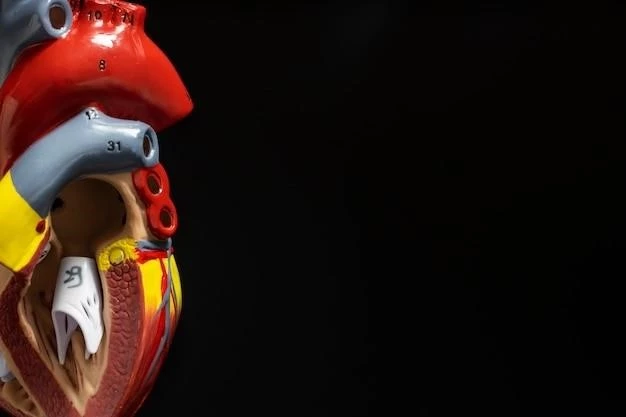Article Plan⁚ Disease ౼ Sudden Cardiac Death
Introduction to Sudden Cardiac Death
Sudden cardiac death is an unexpected natural death from a cardiac cause within a short time period of symptom onset. It is different from a heart attack or myocardial infarction. The condition is linked to an irregular heart rhythm that disrupts the heart’s ability to pump blood effectively, leading to a swift stop in heart activity. Sudden cardiac death can occur in individuals with known or unknown heart conditions and often happens without prior warning signs.
Cardiac arrest, representing a sudden stop in heart function, is a key component of sudden cardiac death. Sudden cardiac death is a major global health concern, causing a significant number of cardiovascular fatalities annually. The incidence of this condition varies across age groups and regions, highlighting the importance of understanding the underlying causes, risk factors, prevention strategies, and treatment options to combat this serious health issue.
Understanding Sudden Cardiac Arrest
Sudden cardiac arrest (SCA) is a critical medical emergency where the heart unexpectedly stops beating. This abrupt cessation of heart function leads to the interruption of blood flow to vital organs like the brain, causing the person to lose consciousness and stop breathing. If not treated promptly, sudden cardiac arrest can swiftly result in death. Unlike a heart attack, in which blood flow to the heart muscle is blocked, SCA is characterized by a malfunction in the heart’s electrical system, causing it to stop pumping blood effectively.
Immediate action through cardiopulmonary resuscitation (CPR) and defibrillation is crucial to restore the heart’s rhythm and circulation during sudden cardiac arrest. Recognizing the warning signs and risk factors associated with SCA plays a vital role in prevention and improving outcomes. Understanding the mechanisms and triggers behind sudden cardiac arrest is essential in implementing effective strategies to reduce its incidence and enhance survival rates in cases of SCA.
Symptoms and Causes of Sudden Cardiac Death
Sudden cardiac death can manifest without warning signs, but individuals might experience chest pain, shortness of breath, racing heartbeat, and dizziness before the event. Underlying causes include heart conditions like coronary artery disease, structural heart abnormalities, inherited arrhythmias, and cardiomyopathy. Other risk factors involve smoking, high blood pressure, diabetes, and a history of heart disease. Understanding these symptoms and causes is crucial for early detection, prevention, and timely intervention to reduce the incidence of sudden cardiac death.

Risk Factors Associated with Sudden Cardiac Death
Several risk factors contribute to sudden cardiac death, including coronary artery disease, family history of heart conditions, abnormal heart structure, and heart rhythm disorders. Other significant risk factors involve smoking, high cholesterol levels, high blood pressure, obesity, diabetes, and a sedentary lifestyle. Understanding and managing these risk factors are crucial in preventing and reducing the incidence of sudden cardiac death. Early detection, lifestyle modifications, and appropriate medical management play a vital role in mitigating the risk associated with this serious cardiovascular event.
Prevention and Treatment Options
Preventing sudden cardiac death involves managing risk factors like coronary artery disease, hypertension, and diabetes through lifestyle changes and medications. Treatment options include implantable cardioverter-defibrillators (ICDs), which can deliver electric shocks to restore normal heart rhythms during episodes of ventricular arrhythmias. Additionally, prompt CPR and early defibrillation are vital in increasing survival rates among individuals experiencing sudden cardiac arrest. Education on recognizing symptoms, access to emergency services, and widespread availability of AEDs in public places play a crucial role in preventing fatalities related to sudden cardiac events.
Statistics on Sudden Cardiac Death
Sudden cardiac death (SCD) accounts for a substantial number of cardiovascular fatalities globally, with an estimated incidence of over 300٫000 deaths in the United States annually. It is a significant cause of natural deaths٫ particularly affecting individuals with underlying heart conditions or risk factors. The incidence of sudden cardiac death varies across regions and age groups٫ highlighting the need for targeted prevention and awareness initiatives to address this critical health issue effectively.
Sudden Cardiac Death in Athletes
Sudden cardiac death in athletes is a rare but devastating occurrence, often linked to undiagnosed heart conditions like hypertrophic cardiomyopathy or genetic abnormalities. Vigorous physical activity can sometimes trigger cardiac events in individuals with underlying heart issues, emphasizing the importance of pre-participation screening and regular cardiac evaluations for athletes. Understanding the unique risks faced by athletes and implementing preventive measures are crucial in safeguarding their cardiovascular health and preventing tragic outcomes on the playing field.
Impact of Sudden Cardiac Death in Various Age Groups

Sudden cardiac death can have a significant impact across different age groups. Infants may be affected by the sudden infant death syndrome, while coronary artery disease places individuals between 45 and 75 years at higher risk. In athletes, sudden cardiac death is rare but can occur due to undiagnosed heart conditions. Understanding the varied impact on diverse age groups is crucial in implementing targeted preventive measures and enhancing awareness to mitigate the consequences of this serious cardiovascular event.
Regional Variances in Sudden Cardiac Death Incidence
The incidence of sudden cardiac death varies geographically, with countries like China reporting rates of 41.8 per 100,000 and South India at 39.7 per 100,000. These disparities highlight regional variations in cardiovascular health and medical infrastructure. Understanding these regional variances is essential for implementing targeted preventive measures and improving outcomes related to sudden cardiac death in different parts of the world.
Forensic Implications of Sudden Cardiac Death
Forensically, sudden cardiac death cases involve investigating the circumstances leading to the event to determine the cause of death. Autopsies play a crucial role in identifying underlying heart conditions or abnormalities that might have contributed to the sudden cardiac fatality. Understanding the forensic implications helps in clarifying the sequence of events and establishing if any external factors were involved in cases of sudden cardiac death, aiding in legal and medical assessments.
Relationship between Sudden Cardiac Death and Heart Diseases
Sudden cardiac death is often linked to underlying heart diseases like coronary artery disease, cardiomyopathy, and arrhythmias. These heart conditions increase the risk of experiencing sudden cardiac arrest and eventual fatality. Understanding the interplay between heart diseases and sudden cardiac death is crucial in identifying at-risk individuals, implementing preventive strategies, and improving outcomes in cases of cardiac emergencies.
Public Awareness and Education Initiatives
Public awareness and education initiatives play a critical role in raising consciousness about sudden cardiac death, its risk factors, and preventive measures. Campaigns advocating for CPR training, the importance of AED accessibility in public spaces, and the recognition of warning signs of cardiac arrest are essential in equipping communities to respond effectively to emergencies. Educating the public about heart-healthy lifestyles, regular screenings, and early intervention strategies can significantly reduce the incidence of sudden cardiac death and improve survival rates. Collaboration between healthcare providers, policymakers, and educational institutions is vital in promoting awareness and empowering individuals to take proactive steps towards heart health.
Conclusion⁚ Future Perspectives on Sudden Cardiac Death
In conclusion, addressing the challenges posed by sudden cardiac death requires a multifaceted approach encompassing awareness, education, prevention, and timely intervention. The future outlook on managing sudden cardiac death involves advancements in screening methods, accessible defibrillation resources, and enhanced public health campaigns; By prioritizing heart health, promoting early detection, and fostering a culture of preparedness, we can strive towards reducing the burden of sudden cardiac death and saving lives globally.
